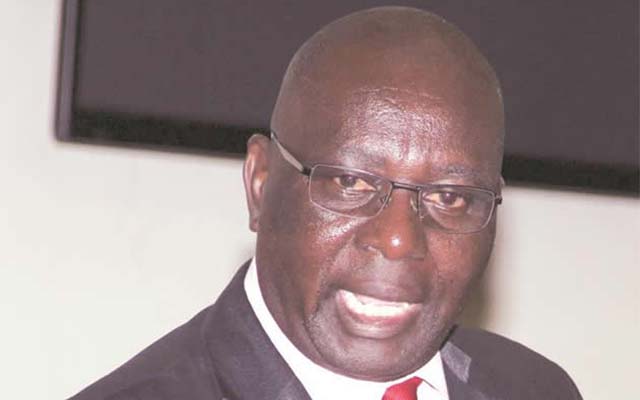New UNAIDS boss exposes British sabotage efforts

Sydney Kawadza Senior Reporter
UNAIDS Country Director in Zimbabwe Mr Haile Girmony could have inadvertently exposed British manoeuvres to sabotage Government’s successful programmes in the fight against HIV and Aids and healthcare delivery. Government sources have revealed how Mr Girmony, who had been summoned by the Ministry of Foreign Affairs for breaching diplomatic protocol, later revealed how Britain, through its development agency, the Department for International Development, was trying to divert funds saved for drug procurement to France.
The latest development falls directly against the British, who have imposed illegal sanctions against Zimbabwe, but continue denying interfering in the country’s domestic affairs.
President Mugabe has been on record denouncing Britain and its Western allies for imposing the illegal sanctions against Zimbabwe as a regime change agenda.
“Mr Girmony was summoned by the Ministry of Foreign Affairs after a defective note verbale from UNAIDS seeking an appointment with Minister Simbarashe Mumbengegwi to present his papers had been copied to the Director of Protocol and Conferencing,” said the sources.
“In the diplomatic circles, carbon copying a note verbale is considered to be rude.”
A note verbale is a piece of diplomatic correspondence prepared in the third person, an informal message used in diplomacy.
It is said that Mr Girmony, during the meeting, revealed that Government and UNAIDS had agreed to spend a $93 million grant on drug procurement.
“This is the moment that the new UNAIDS country director virtually exposed the British underhand efforts to sabotage Government programmes, especially in the health sector,” the sources said.
“Mr Girmony revealed during the meeting that the British, through the DFID, were against the agreement between Government and UNAIDS and was influencing the sponsoring of non-governmental organisations against supporting the use of the remaining fund for the drug procurement.”
The interference by the British means Zimbabwe cannot use the $93 million for the purchase of critical drugs.
DIFD has urged the donor to divert the funds to French NGOs instead of assisting the Zimbabwean Government in the health sector.
UNAIDS cannot proceed with the programme without the concurrence of the sponsoring NGOs.
“Moves by the DFID to influence sponsoring NGOs to veto the idea and transfer the money meant for drugs procurement tremendously affects the Ministry of Health and Child Care’s efforts to equip our health institutions,” the sources said.
Government recently announced that it had saved about $180 million from its initially allocated budget to fight HIV and aids, tuberculosis and malaria between 2014 and 2017.
While it was not clear whether the $93 million being withheld through the British influence was part of the $180 million, Zimbabwe was allocated $311 million to fight the above mentioned diseases for a period of three years.
The savings have been attributed to the drop in drug prices.
Government had intended to re-channel the $138 million towards other interventions.
The Global Fund in Zimbabwe, a major contributor in the fight against the three diseases, had urged Government to re-prioritise its needs and apply for approval from the Global Fund to avoid returning the savings.









Comments